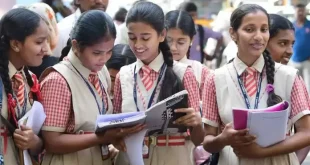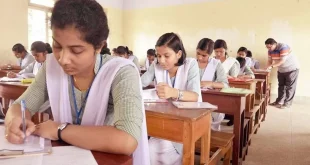
The date of March 02 is recorded in the history of the country and the world for many important reasons. This date is an important part of history as the death of the country's first woman Governor Sarojini Naidu. Sarojini Naidu is also remembered as a social worker. As a freedom fighter, she stood strongly against the tyranny of colonial rule. As a famous poet and playwright, he raised social issues. Sarojini Naidu died in Lucknow on March 2, 1949, exactly two years after the country gained independence. He started writing poems at the age of 12. Impressed by her poems, Mahatma Gandhi gave her the title of Nightingale of India.
Sarojini Naidu was born on February 13, 1879 in Hyderabad in a Bengali family. He topped the matriculation examination from Madras University. In 1895, at the age of 16, Naidu went to England for higher education and studied at King's College London and Girton College for the next three years. In 1898, at the age of 19, Sarojini Naidu was married to Dr. Govind Rajalu Naidu. In 1914, she met Mahatma Gandhi and from here she joined the country's freedom movement. Before Gandhiji came to India, he had also worked with Bapu in South Africa. In 1925, she became the first Indian woman president of the Congress. Although the first woman President of Congress was Annie Besant, but Sarojini Naidu is the first Indian woman to reach this post.
Sarojini Naidu was awarded 'Kesar-e-Hind' in 1928 for her brilliant work during the plague epidemic in India. After the independence of the country, he was elected the Governor of United Provinces (now Uttar Pradesh). Sarojini Naidu is the first woman Governor of the country. She remained in this post till her death. Celebration of National Women's Day was started in India on 13 February from the 135th birth anniversary of Sarojini Naidu.
important events
1807: America's Parliament, or Congress, passed a law to ban the import of slaves into the country. This is considered an important step taken to end slavery.
1991: 19 people, including Sri Lankan Defense Deputy Minister Ranjan Vijayaratne, were killed and 73 injured in a car bomb blast in Colombo, the capital of Sri Lanka.
1995: Ecuador and Peru reached an agreement to end the conflict.
1997: China's defense budget increased by 12 percent.
1999: America denies news of any secret agreement with India to sign Comprehensive Nuclear-Test-Ban Treaty.
2000: Britain released former Chilean military dictator General Augusto Pinochet. Left for home.
2002: Palestine broke all relations with Israel.
2006: Historic nuclear agreement between India and America in New Delhi.
2008: Eyegate Corporation appointed Fani Murthy as its Chief Operating Officer.
2008: Israeli attack on the office of Ismail Haniya of Hamas.
2008: Iranian President Mahmoud Ahmadinejad reached Iraq on his historic visit.
2008: The government of Nepal reached an agreement with a coalition of warring indigenous ethnic groups demanding greater autonomy in the eastern mountainous regions.
2009: The Election Commission of India announced to hold Lok Sabha elections in five phases between 16 April and 13 May.
2009: The board of directors of investors of Reliance Industries Limited and its subsidiary Reliance Petroleum approved the proposal to merge the two companies.
2009: Joao Bernardo Vieira, three-time President of the West African country Guinea-Bissau, was assassinated by soldiers.
Birth
1924: Hindi film producer-distributor Gulshan Rai.
1926: CPI leader PK Vasudevan Nair.
1953: Manoranjan Sahu, former head of the Faculty of Ayurveda of Banaras Hindu University and expert in Ksharsutra system of medicine.
death
1949: Sarojini Naidu, the country's first woman governor.
2010 Former Indian hockey player Syed Ali
2021: Famous classical player and composer BS Narang.
day
-Death anniversary of Sarojini Naidu.
 look news india
look news india

